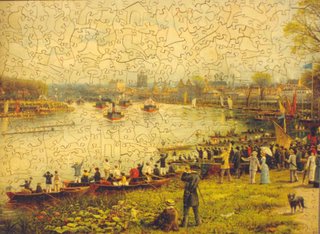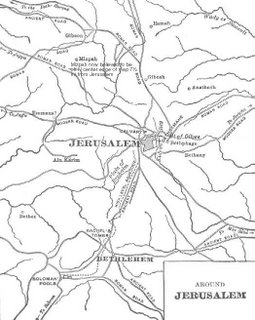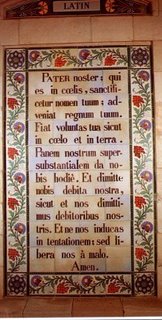I. COMMUNICATE CLEARLY (Acts 19:1-5)
II. BE AVAILABLE (Acts 19:8-10)
III. DON’T LET CONTROVERSY DETER YOU (Acts 19:23-28)
BIBLICAL SETTING: Acts 19 is the story of Paul’s ministry in Ephesus that resulted in a local church and many transformed lives. As Paul began his ministry in that city, he encountered disciples of John the Baptist who did not understand fully the role of the Holy Spirit and how the Holy Spirit related to John’s baptism or to Jesus Himself. Paul’s explanation to these disciples is an excellent model on the importance of communicating clearly to those to whom we minister.
The Churches Around Ephesus -
by the Biblical the Illustrator staff.
[Edited] The message preached in the lecture hall triumphed over the scream in the theater. “Great is Artemis of the Ephesians!” The mob screamed the words as they rioted against Paul in the Great Theater at Ephesus (Acts 19:28-34, RSV). Her magnificent temple at Ephesus was one of the seven wonders of the ancient world. If it was any indication of greatness, she was, indeed, great. Paul’s meeting place, Tyrannus’ lecture hall (Acts 19:9, RSV) certainly was no match architecturally for the goddess’ lavishly decorated shrine.
Yet the splendid pagan edifice of Artemis (Diana) was destroyed about AD 262. Sometime later Ephesian Christians were worshiping in the two great church buildings they erected in and around the city. These also lie in ruin today, but they are impressive monuments to the success of Paul and a host of others in transforming a great pagan center into a powerful Christian city during the early centuries of the Christian era.
Ephesus was the primary city of Roman Asia in the New Testament era. Paul’s preaching to the Greeks, Jews, religious pilgrims, businessmen, and other residents there bore much fruit, as Acts 19 indicates.
Paul’s own statement that he would tarry in Ephesus because of “the wide door for effective work” which “God had opened reinforces this conclusion (1 Cor. 16:8-9, RSV).
Whether Paul or John the Evangelist (as another tradition has it) founded the church at Ephesus, later Christian sources show that the gospel continued to find fertile soil there. Revelation, written late in the New Testament era, pleads with the Ephesian Church to remember its former days of glory, to repent and receive a new spiritual vitality (Rev. 2:5). Outside the New Testament the letter of Ignatius of Antioch to Ephesus, written about AD 107, speaks favorable of the church’s Christian testimony. Several other second-century sources relate traditions that point to Ephesus’ continuing importance as a Christian center.
Ephesus was well-known for the magnificent temple to Artemis, and much of the city’s life circulated around it. One of the Seven Wonders of the Ancient World, the structure was 165 feet by 345 feet in dimension and stood on a base 240 by 420 feet. The temple generated so much economy (a great deal of business) that it became an important trade for the whole region. Paganism and idolatry were associated with worship at the temple of this mother goddess who supposedly gave fertility to humankind.
Centuries later, on June 22, AD 431, 159 bishops, who constituted the Third Ecumenical Council, met in Ephesus and declared, among other things, the Mary was to be designated the “Mother of God.” This act gave official sanction to the growing devotion to Mary in the ancient Christian church and opened the door for further development of the doctrine of Mary. Ironically, in the city where pilgrims from all over the world had once assembled to worship Artemis, a giant step was taken toward the veneration of another female. SOURCE: Biblical Illustrator; LifeWay Christian Resources of the Southern Baptist Convention; Nashville, TN 37234.
Apollos – or Apollos (Απολλως) is mentioned several times in the New Testament. His special gifts in presenting Christian doctrine made him an important person in the congregation at Corinth after Paul's first visit there. 1 Cor. 3:6. He was with Paul at a later date in Ephesus (1 Cor. 16:12). In 1 Cor. 1:10-12 we read of four parties in the Corinthian church, of which two attached themselves to Paul and Apollos respectively, using their names, though the "division" can hardly have been due to conflicting doctrines, and there is no indication that Apollos favored or approved an overestimation of his person. Paul considered Apollos to be a valuable helper in carrying on his work in the important Corinthian congregation (1 Cor. 3:6, 4:6, 16:12).
In harmony with Paul's notices are the statements of Acts 18:24-28 that Apollos was a highly educated Alexandrian Jew, who came to Ephesus (probably in 54), was instructed more accurately in the gospel there by Aquila and Priscilla and afterwards settled in Achaia, where he showed himself useful to the Church by speaking and teaching with power and success.
It is difficult to get a correct idea of his religious standpoint; but it probably was that of the disciples of John the Baptist (Acts 19:1-7). Taken all in all, it may be said that Apollos was a zealous missionary, who, while confessing Jesus, did not have the full New Testament revelation, and stood in danger of becoming antagonistic to the apostolic message to all the world; he became, however, an adherent of the Pauline doctrine.
In the Epistle to Titus (3:13) Apollos is mentioned, with Zenas, as bearer of the letter to Crete. Martin Luther regarded Apollos as the author of the Epistle to the Hebrews, and many scholars since have shared his view.
ARTEMIS (ahr' tih mihs): names the Greek goddess of the moon, the daughter of Zeus and Leto, whose worship was threatened by Paul’s preaching of the gospel. Artemis was the goddess who watched over nature for both humans and animals. She was the patron deity of wild animals, protecting them from ruthless treatment and at the same time regulating the rules of hunting activities for humans. She was considered the great mother image and gave fertility to humankind. In the Greek homeland she was usually portrayed by the statues as a young, attractive virgin, wearing a short tunic and having her hair pulled back on her head. In Ephesus and western Asia Minor she was portrayed as a more mature woman. Her robe is draped in such a way as to expose her bosom that is covered with multiple breasts, depicting her gift of fertility and nurture. Often standing beside her is a fawn or stag on each side representing her relation to the animal world. The official local statue was carefully housed in a temple honoring Artemis.
The most famous statue was located in the city of Ephesus, the official “temple keeper” for Artemis. Artemis was the chief deity of Ephesus, and her temple was one of the seven wonders of the ancient world. The temple ceremonies were carried out by priests who were eunuchs and priestesses who were virgins. They conducted the daily ceremonies caring for the deity and for the gifts brought by worshipers, as well as an annual festival on May 25, when numerous statues of the goddess were carried in procession to the amphitheater in Ephesus for a celebration of music, dancing, and drama. This could be the background of the outcry in Acts 19:28: “Great is Artemis of the Ephesians.”
The statues of the goddess, often miniature models of the temple with an image of the goddess within, were sold widely. In Acts, a silversmith named Demetrius rallied support against Paul’s preaching of the gospel for fear that it might damage his business selling statues. Diana was a Roman deity somewhat similar to the more popular Artemis. As the Italic and Greek divinities met, she was quickly identified with Artemis. SOURCE: Holman Bible Dictionary; General Editor, David S. Dockery; Editorial Team, Trent C. Butler, Christopher L. Church, Linda L. Scott, Marsha A. Ellis Smith, James Emery White; Holman Bible Publishers; Nashville, Tennessee.
THE WAY (Acts 19:9,23; that way, KJV): One of the earliest designations for the Christian movement was “the Way,” a description peculiar to the Book of Acts (Acts 9:2; 24:14,22). Its exact origin is not known, and it is not certain that the Way ever became a formal name for Christianity. Similar terms are “the way of the Lord” (18:25) and “the way of God” (18:26). Perhaps Christians in the first century remembered the words of Christ recorded in John 14:6 and thus used the Way in an absolute sense that Jesus is the Messiah, the one and only Savior. So the term the Way stuck as an identifier of the Christian message. Behind the term is the idea of the way of the Lord as “the way of salvation” (Acts 16:17). The designation implies that the Christian faith is not just a set of beliefs but a way to live. It is not just the answer to our deepest questions, but the pathway to our highest fulfillment. The Christian faith is not just theology, it is life.
[The word “Way” is thought of as a natural path rather than a fixed highway. Thus, those on “the way” are blazing their own trail and not following the broad path that everybody else follows.]
SOURCE: FAMILY BIBLE STUDY, Life Ventures Leader Guide; LifeWay Christian Resources of the Southern Baptist Convention; One LifeWay Plaza, Nashville, TN.






























